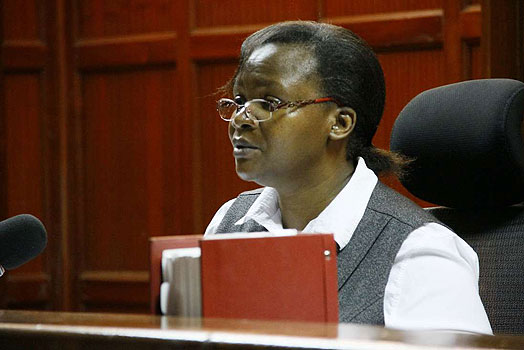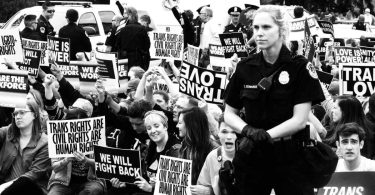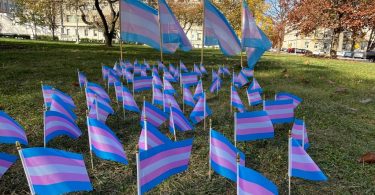U.S. Travel advisories against Kenya should be increased. This is the demand by leaders of the LGBT Community to the U.S. Department of State in response to Judge Roselyn Aburili declaring last week that Kenya’s anti-sodomy laws didn’t violate the country’s constitution, arguing that there was “no conclusive scientific proof that LGBTQ people are born that way.
Only two countries and one territory in Africa welcome LGBT travelers with open arms. South Africa is the only country, and Reunion as a part of France recognizes same-sex marriages. Seychelles told the world in 2016, they welcome LGBT travelers with open arms.
African courts in Angola, Belize, Cameroon, India, Lesotho, Mozambique, Namibia, São Tomé and Cape Verde, Seychelles, and Uganda have ruled positively from decriminalization of homosexuality to legal recognition of organizations to legally recognizing transgender rights.
However, it may not be safe for LGBTQ tourists to visit a majority of African countries. Currently, LGBTQ travelers should be cautious and hide their sexual preference when considering a holiday in the following African countries:
Algeria
Gay sex is punishable by imprisonment of up to two years and a fine of up to 2,000 Algerian dinars ($19).
Angola
Sexually-active gay people can have security measures imposed on them, including probation or internment in a workhouse or farming colony for up to three years. The country is currently in the process of adopting a law that repeals provisions against same-sex relationships.
Botswana
Anyone who has “carnal knowledge of any person against the order of nature”—a phrase often used in legal codes to refer to homosexual activity—can be sentenced to prison for up to seven years.
Burundi
The East African state punishes homosexual activity with imprisonment of up to two years and a fine of up to 100,000 Burundian francs ($58).
Comoros
The archipelago off Africa’s east coast punishes gay sex with a prison sentence of up to five years and 1 million Comorian francs ($2,322).
Egypt
Egyptian law does not specifically proscribe consensual homosexual relations between adults, but other laws—including those banning debauchery and prostitution—have been used to imprison gay men in the past.
Eritrea
Same-sex relations are punishable by simple imprisonment—i.e. jail time which does not involve hard labor—according to Eritrea’s law code; the sentence is not clarified.
Eswatini
Same-sex relations are a common law offense. The law applies only to men, although homosexual women also often face discrimination and violence.
Ethiopia
The Horn of Africa country punishes “a homosexual act, or any other indecent act” with simple imprisonment, with no specified sentence. It hands out harsher sentences for a homosexual activity that results in the transmission of sexually-transmitted diseases.
The Gambia
The tiny West African country punishes sexually-active gay people with prison terms of up to 14 years; oral and anal sex are included under the law. Gay people can face life imprisonment if one of the partners is under 18 years old or if one has HIV.
Ghana
Ghanaian law defines consensual homosexual sex as a “misdemeanor,” punishable by three years’ imprisonment. Homosexual sex without consent is classified as a first-degree felony and can carry a 25-year prison term. The laws apply only to men, according to ILGA.
Guinea
Sexual acts between persons of the same gender are punishable by three years’ imprisonment and a maximum fine of 1 million Guinean francs ($111).
Kenya
The East African giant punishes homosexual sex between men with 14 years’ imprisonment, which goes up to 21 years if it is not consensual. The law only applies to men.
Liberia
Liberian law defines homosexuality—along with oral sex and sex or sexual touching between unmarried heterosexual persons—as “deviate sexual intercourse,” which is classed as a first-degree misdemeanour carrying a one-year prison sentence.
Libya
The North African state punishes what it regards as “illicit sexual intercourse” with five years’ imprisonment.
Malawi
Homosexual activity is punishable by 14 years’ imprisonment, potentially with corporal punishment (such as caning or flogging).
Mauritania
The Islamic republic prescribes death by stoning for men who have homosexual sex, though it has had a de facto moratorium on the penalty for almost 30 years. Homosexual activity between women is punishable by two years’ imprisonment and a fine of up to 60,000 Mauritanian ouguiya ($167).
Mauritius
“Sodomy” carries a penalty of five years’ imprisonment. It applies only to men.
Morocco
“Anyone who commits lewd or unnatural acts” with others of the same sex can face a prison term of up to three years in Morocco and a fine of up to 1,000 dirhams ($104), unless there are “aggravating circumstances.”
Nigeria
Nigerian law carries a 14-year prison sentence for homosexual activity. Twelve states in northern Nigeria—which is predominantly Muslim—have adopted shariah law, under which the maximum penalty for homosexual activity between men is death, and for women is whipping and/or imprisonment.
Senegal
Homosexual sex is punishable by a maximum sentence of five years’ imprisonment and a fine of up to 1.5 million ($2,613).
Sierra Leone
The act of “buggery”—generally defined as anal intercourse, but also bestiality—carries a minimum sentence of 10 years in prison or a maximum sentence of life imprisonment. It only applies to men.
Somalia
possible to reach millions worldwide
Google News, Bing News, Yahoo News, 200+ publications
Somalia’s penal code punishes gay sex with a prison sentence of up to three years. The implementation of the penal code is limited, however, since the federal government in the capital Mogadishu exerts limited control over the country. In southern areas controlled by Al-Shabab, a strict interpretation of sharia law is implemented and homosexual sex is punishable by death.
South Sudan
The world’s youngest country punishes what it calls “carnal intercourse against the order of nature” with a prison sentence of up to 10 years. It also proscribes qadhf—falsely accusing someone of homosexuality or other forms of sexual activity forbidden under South Sudanese law—and the offense carries a penalty of 80 lashes.
Sudan
Sudanese law carries incremental punishments for “sodomy,” defined as anal sex between persons of the same sex or different sexes. First offenders face 100 hundred lashes and five years’ imprisonment; second offenders face the same punishment, but third offenders can be sentenced to death or life imprisonment. Sudan also proscribes qadhf.
Tanzania
Homosexual activity is punishable by a minimum term of 30 years in prison or a maximum term of life.
Togo
The West African state punishes same-sex activity with prison sentences of between one and three years and fines of up to 500,000 West African CFA francs ($871). The law applies only to men.
Tunisia
“Sodomy” is punishable by three years’ imprisonment; the term includes both male and female homosexual activity.
Zambia
Homosexual activity between men or women is punishable by life imprisonment, though its enforcement is variable.
The World Health Organization on May 25 officially declassified transgender people as mentally ill.
Last year, Kenyan President Uhuru Kenyatta told CNN’s Christiane Amanpour that LGBT rights were not of “major importance” to Kenyans.
In a statement, he said that decriminalizing homosexuality would “open the door for same-sex unions,” an argument that has been made mostly by Christian and Muslim opponents of LGBT rights.
Eric Gitari, a gay activist and former president of the National Gay and Lesbian Human Rights Commission who challenged Kenya’s anti-sodomy laws petitioning the courts three years ago, called the ruling “very biased” and vowed to appeal the decision.
In 2016, Gitari filed a case against Kenya’s anti-sodomy laws, arguing that they violated the country’s 2010 constitution guaranteeing equality, dignity, and privacy for all citizens.
Around the same time, two other organizations, the Gay and Lesbian Coalition of Kenya and the Nyanza, Rift Valley and Western Kenya Network, and individual petitioners filed a case citing similar issues.
The cases were consolidated by the high court and referred to a three-judge panel.
LGBT and human rights advocates were hopeful Kenya would strike down the law. Under Kenya’s laws, LGBT people, mostly gay men, face 14 years in jail if convicted under penal code articles 162 and 165.
The laws are rarely enforced, according to Human Rights Watch senior LGBT researcher Neela Ghoshal. There have only been two prosecutions against four people under article 162 within the past 10 years, she noted in a statement from the organization responding to the court’s May 24 ruling.
The laws’ existence allows for an environment of homophobia and persecution, she said.
The Kenyan government reported 534 people were arrested for same-sex relationships between 2013 and 2017. Kenya’s NGLHRC, one of the petitioners in the case, recorded more than 1,500 attacks against LGBT people since 2014, reported Devdiscourse. Homophobia is widespread in Kenya.
Anti-gay supporter the Reverend Tom Otieno of Lavington United Church stated that Kenya will never accept LGBT people. “We are not about to accept homosexuality and we will not accept it. Even if the courts try to tinker with it, we will go back to court,” he told CNN.
In a 2018 report entitled “Polarized Progress: Social Acceptance of LGBT People in 141 Countries, 1981-2014,” the Williams Institute, an LGBT think tank at UCLA School of Law, identified Kenya as one of the least accepting countries and that conditions were worsening.
Anti-Sodomy laws violate Kenya’s international agreements to uphold human rights.
British Prime Minister Theresa May, who will step down next week, expressed regret for Britain’s colonial-era laws last year. She urged Commonwealth nations to decriminalize homosexuality.
NGLHRC director Njeri Gateru told HRW that she believes eventually justice will prevail in Kenya, but “in the meantime, ordinary LGBT Kenyans will continue to pay the price for the state’s indifference to inequality.”
The court’s ruling has broader implications beyond Kenya’s borders on the African Continent.
“It’s a blow for human rights in Kenya and sends a dangerous signal to the rest of the Commonwealth, where many citizens continue to be criminalized simply because of their sexual orientation or gender identity,” Tea Braun, director of Human Dignity Trust, told Reuters.
The New York Times reported that out of 55 African countries, 38 have criminalized same-sex relationships. Homosexuality is punishable by death in Somalia and South Sudan. Like Kenya, Nigeria sentences LGBT people to 14-year prison terms, while the maximum sentence in Tanzania is 30 years.






